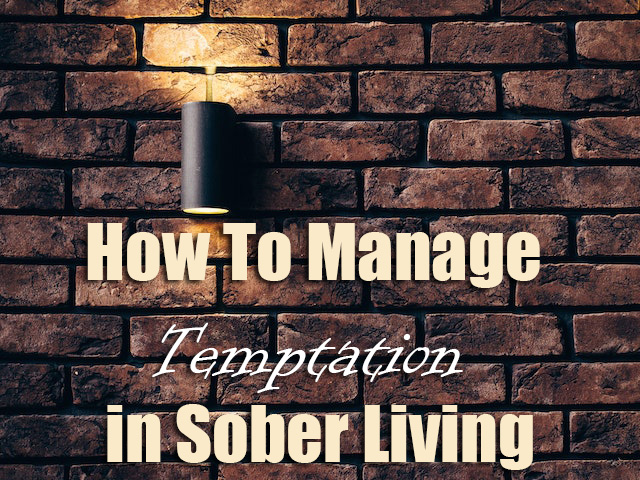Sober living is an important part of recovery from addiction. When you first get sober, it can be difficult to adjust to life without drugs or alcohol. There will be temptations and triggers that can make it hard to stay on the path towards sobriety. Knowing how to manage these temptations is key to having a successful recovery journey.
Why Sober Living is Challenging
Sober living can be challenging for a variety of reasons, but one of the most common challenges is resisting temptation. Even if you’re committed to staying sober, it’s normal to feel tempted in certain situations. This could be anything from going out with friends who are drinking or attending an event where alcohol is served, or even just being around people who are using substances. It’s important to remember that these temptations are natural—and they don’t mean that you’ve failed or that you’re not committed to staying sober.
Developing a Support Network
When entering into sober living, it’s important to have a network of support. This could include family members, friends, counselors, or other recovering addicts who are also in sober living. Having this support system will help you stay focused on your recovery goals and give you someone to talk to if temptations arise. It’s also helpful to build relationships with people in the same situation as you and learn from their experiences.
Identifying Triggers and Coping Mechanisms
The next step is learning how to identify triggers that may lead to temptation. Triggers can vary from person to person depending on their individual backgrounds, but common ones include emotions such as anger, sadness, or loneliness; certain locations; people; or certain activities such as watching television or going out with friends who are still using drugs or alcohol. Once you know what your personal triggers are, it’s important to develop coping mechanisms for when they arise so that you don’t relapse into drug or alcohol use. Examples of coping mechanisms include exercising, journaling, going for a walk, calling a friend for support or engaging in activities like painting or playing an instrument.
Setting Goals
Finally, setting goals is one of the most important steps in managing temptation while in sober living. Setting both short-term and long-term goals gives you something concrete to work towards and helps keep you motivated throughout your recovery process. Short-term goals might involve attending meetings regularly or finding a job while long-term goals might involve going back to school or developing new relationships with friends who don’t use drugs or alcohol. Having achievable objectives gives you something positive focus on when temptation arises instead of succumbing to cravings for drugs and alcohol.
How to Overcome Temptation
The key to overcoming temptation is having a plan in place ahead of time so you know what steps you need to take if you find yourself in a tempting situation. This could involve having an accountability partner you can call when cravings strike, attending a 12-step meeting, meditating or engaging in deep breathing exercises, or engaging in activities that help distract your mind from cravings (e.g., exercising). It’s also important to recognize your triggers—situations that make it more likely for cravings to arise—so you know how best to manage them when they do come up.
Temptation isn’t something that should be feared; instead, it should be seen as an opportunity for growth—an opportunity for learning about yourself and how best to handle challenging situations when they arise. With enough practice and dedication, it will become easier over time until eventually resisting temptation becomes second nature.
Sober living is an essential part of the recovery process for anyone struggling with addiction issues. While there will be temptations along the way that can derail progress towards sobriety, understanding how to manage these temptations through developing a strong support system, identifying personal triggers and coping mechanisms, and setting achievable goals can help individuals stay focused on their recovery journey and remain on the path towards lasting sobriety.






Speak Your Mind